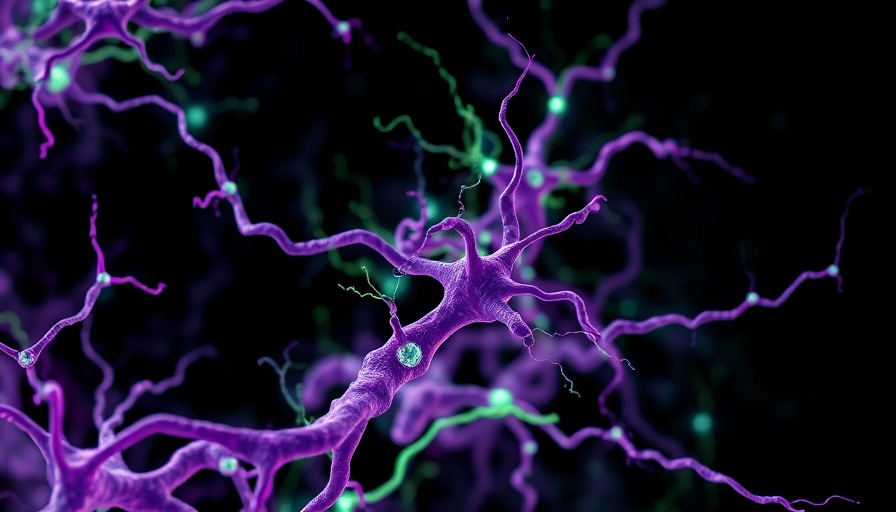
Mapping the Brain's Blueprint: Gene Networks Revealed
The human brain is beautifully complex, housing a diverse array of neuron subtypes that are essential for cognitive functions. Each cell type plays a unique role in maintaining the intricate operations of our cerebral cortex. Recent research from the University of California Los Angeles (UCLA) breaks new ground in understanding these distinctions by exploring the gene networks that facilitate the specialization of neurons in this critical region. Published in Nature Neuroscience, this study illuminates how our brain develops distinct neuron types through a fascinating interplay of genetics.
The Journey Begins: A Simple Side Project Turns Comprehensive Study
Initially conceived as a side project aimed at integrating publicly available datasets, the research blossomed into a full-scale investigation, spearheaded by senior author Aparna Bhaduri. The team utilized single-cell transcriptomics, a powerful tool for analyzing gene expression at an individual cell level, to map the emergence of these diverse neuron types. This method allowed researchers to discern co-expression gene networks, which offer crucial insights into the dynamic processes behind brain development and specialization.
The Implications of Understanding Neuron Specialization
So, why is it important to unravel the distinct gene programs responsible for neuron specialization? According to Patricia R. Nano, the first author of the study, knowledge of these genetic modules not only paves the way for a deeper understanding of healthy brain function but also sheds light on atypical brain development, including neurodevelopmental disorders. Recognizing which genes activate at specific developmental stages could lead to breakthroughs in clinical applications, potentially aiding in the diagnosis and treatment of various neurological conditions.
Bridging Knowledge Gaps: From Data to Meta-Atlas
The research team endeavored to create a “meta-atlas” of gene expression data, drawing from numerous previous studies that examined different time points in human brain development. By collating and analyzing this extensive information, researchers can observe trends in how different neuron subtypes appear over time and correlate these changes to known developmental stages. This meta-atlas could serve as a crucial resource for researchers aiming to decipher various aspects of human brain physiology.
Linking Gene Networks to Health and Wellness
Cognizant of the interplay between brain health and overall well-being, the study’s findings extend beyond academia. Understanding the genetic underpinnings of neuron subtypes is vital for health and wellness in adults, as neurodevelopmental issues can contribute to long-term problems if not addressed promptly. This research resonates with the broader health and wellness community, particularly those invested in community health initiatives aimed at fostering better mental and cognitive health.
Future Predictions: What This Research Means for Health and Wellness
As the relevance of this research becomes clear, implications for future health and wellness strategies may emerge. The understanding gained from gene networks could enhance our approaches to wellness, potentially influencing lifestyle recommendations and interventions. Individuals could benefit from a growing repertoire of knowledge aimed at optimizing brain health, integrating nutritional support, herbal supplements, and even mindfulness practices into comprehensive wellness programs.
Real-World Applications: Beyond the Laboratory
This groundbreaking research also invites exploration into real-world applications. By demystifying how genes influence neuron specialization, healthcare practitioners can better understand treatment pathways for neurological conditions. Additionally, this knowledge empowers individuals to engage with their health proactively, using insights to inform choices about nutrition, supplements, and mental health resources tailored to enhance overall wellness.
In conclusion, the study conducted by UCLA illuminates the intricate roles that gene networks play in neuronal specialization. More than just a scientific exploration, it carries profound implications for health and wellness, creating pathways for future research and application in clinical settings. By continuing to delve into the connections between gene expression and brain function, we can better understand how to nurture our cognitive health throughout life.
 Add Row
Add Row  Add
Add 




 Add Row
Add Row  Add
Add 


Write A Comment